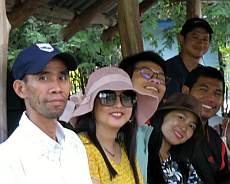
Today was a sightseeing and fun day. In the morning we went to a waterfall and in the afternoon to a mangrove swamp. In the evening we had a final dinner together but that will be the next part. Click here to see photos from today.
Charlie Dittmeier's Home Page

Today was a sightseeing and fun day. In the morning we went to a waterfall and in the afternoon to a mangrove swamp. In the evening we had a final dinner together but that will be the next part. Click here to see photos from today.
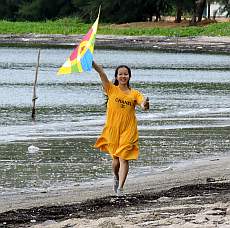
.
Today was partly work and partly play. All of it was spent along the coastline, most on a beach on the Gulf of Thailand. Click here to see photos from the day’s activities.
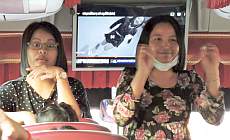
Every year the Maryknoll Deaf Development Programme has a general staff meeting to bring all the staff together for two or three days. We work in different provinces and some of the staff do not get to know each other and see each other except at this annual meeting. This year we are meeting in Koh Kong in southern Cambodia, and because it is so far away, we allowed a day to travel, then two days of gatherings, and then a day to return. Click here to see pictures from this day, the travel day.
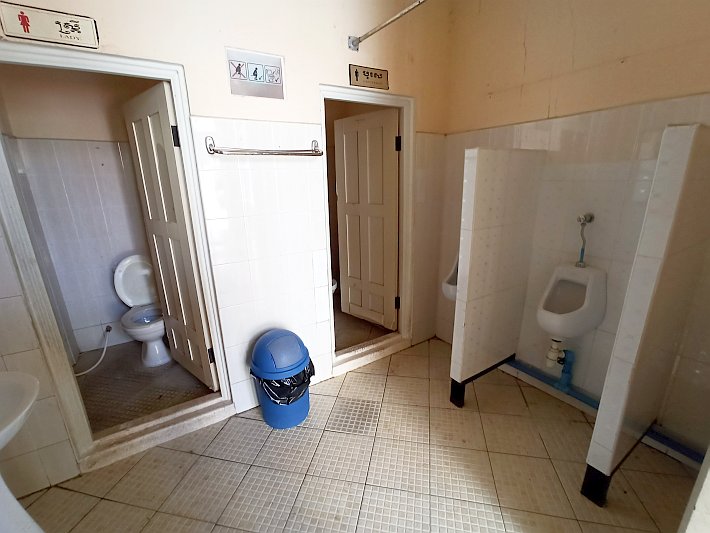
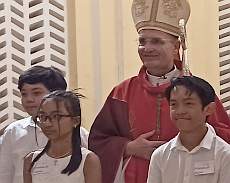
This weekend Bishop Olivier came to our English liturgy to give the Sacrament of Confirmation to nine of our youth. It turned out to be a pleasant ceremony, but different from other confirmations because we had to practice social distancing and wear masks. Click here to see photos from the ceremony.
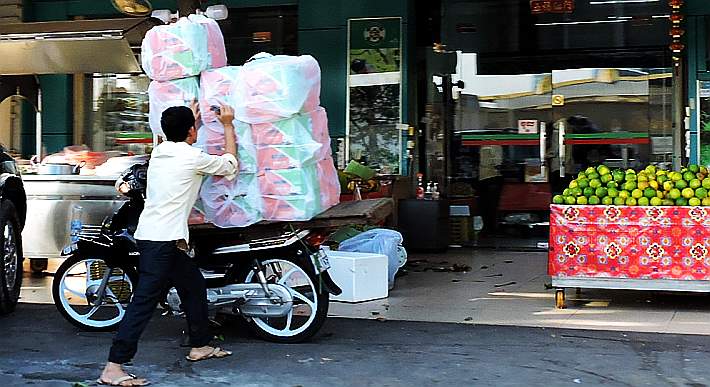
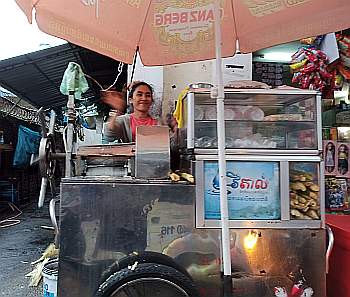
.
Here’s a happy wave from a seller of sugar cane juice!
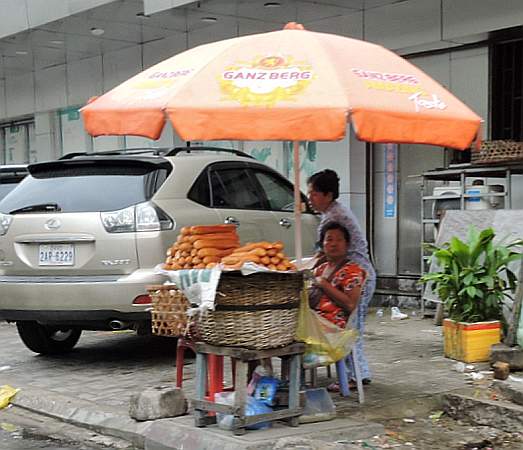
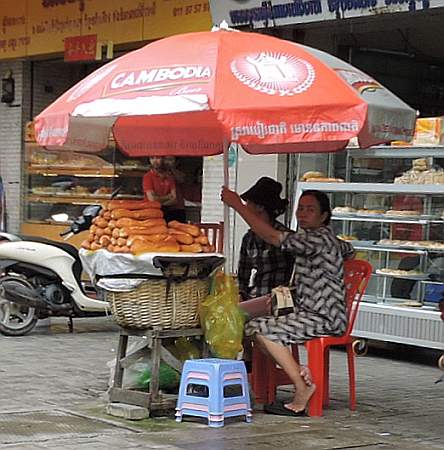
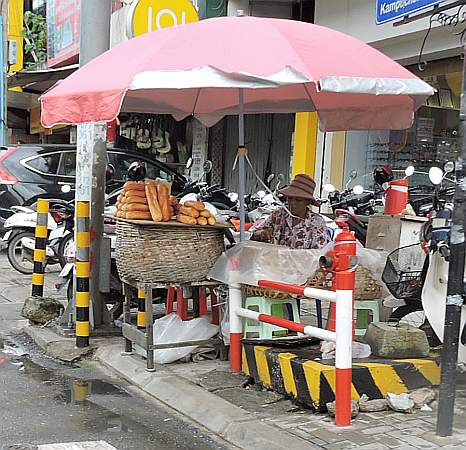
These three ladies are all within shouting distance on the same block of a Phnom Penh street. Their baguettes, one of the last traces of Cambodia’ French history, are much in demand.

COVID-19 has affected people all over the world and in many different ways. Last week I had a funeral in Phnom Penh and afterwards met a young couple, the man from the United States and the woman from Malaysia. They were married in March and came to Cambodia for a honeymoon–and are still here. Because of travel restrictions due to the pandemic, he cannot go to Malaysia and she cannot go to the United States. Seven months now….how long is too long?
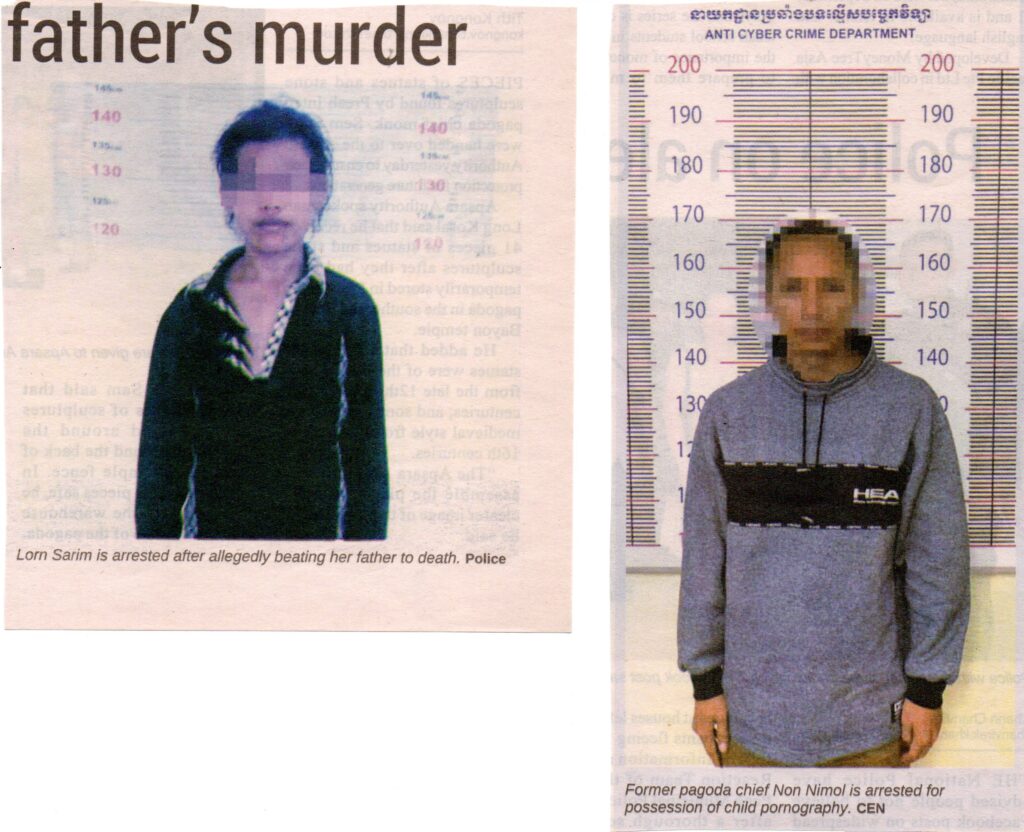
In most countries it is common practice to protect the identities of those who are minors or vulnerable children or who are only alleged to have committed a crime. In such cases the faces of the people are pixelated or otherwise obscured in photos in the newspapers and their real names are not used so that they cannot be identified. Here in Cambodia it is the common practice to pixelate the face or place a black stripe over it, but then they also put the person’s name with the photo! So why obscure the face?